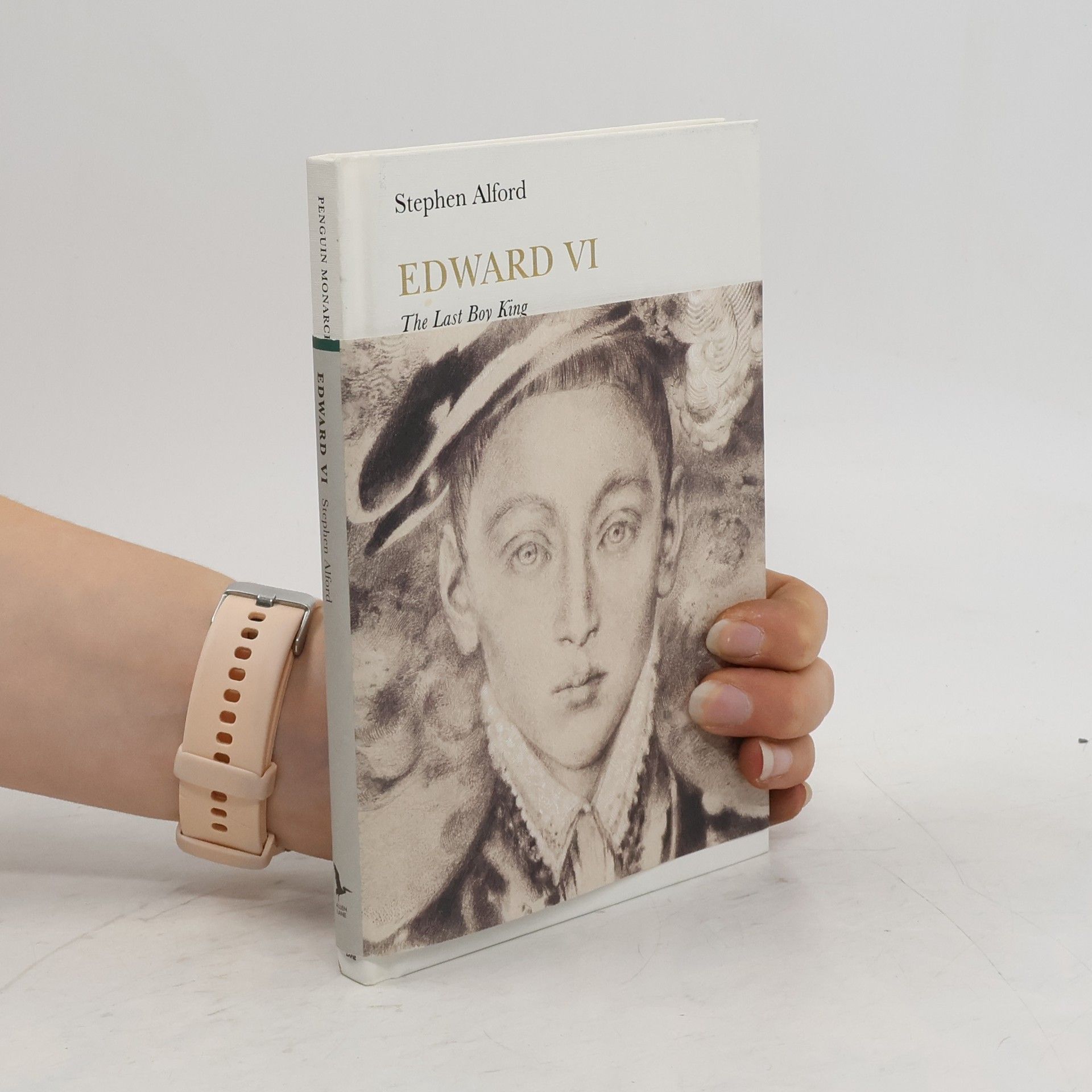The acclaimed and enthralling story of the dark side of Elizabethan rule, from Stephen Alford Elizabeth I's reign is known as a golden age, yet to much of Europe she was a 'Jezebel' and heretic who had to be destroyed. This title is a portrayal of the secret state that sought to protect the Queen; a shadow world of spies, codebreakers and more.
Alford Stephen Livres
Stephen Alford est un historien et universitaire britannique spécialisé dans l'histoire britannique moderne. Son travail explore en profondeur les moments et les figures cruciaux de cette époque, cherchant à dévoiler leurs motivations et leur impact ultérieur. Par une recherche méticuleuse et une narration captivante, il donne vie aux complexités de la société et de la politique de l'époque pour les lecteurs. Son approche analytique et l'accent mis sur le contexte historique font de ses écrits une ressource précieuse pour comprendre l'histoire britannique.



Edward VI (Penguin Monarchs)
- 112pages
- 4 heures de lecture
Edward VI, the only son of Henry VIII, became king at the age of nine and died wholly unexpectedly at the age of fifteen. This book gives full play to the murky, sinister nature of Edward's reign, and also an account of a boy learning to rule, learning to enjoy his growing power and to come out of the shadows of the great aristocrats around him.
From the acclaimed author of The Watchers, the untold story of Robert Cecil - the ultimate Tudor spy-master Robert Cecil, statesman and spymaster, lived through an astonishingly threatening period in English history. Queen Elizabeth had no clear successor and enemies both external and internal threatened to destroy England as a Protestant state, most spectacularly with the Spanish Armada and the Gunpowder Plot. Cecil stood at the heart of the Tudor and then Stuart state, a vital figure in managing the succession from Elizabeth I to James I & VI, warding off military and religious threats and steering the decisions of two very different but equally wilful and hard-to-manage monarchs. The promising son of Queen Elizabeth's chief minister Lord Burghley, for Cecil there was no choice but politics, and he became supremely skilled in the arts of power, making many rivals and enemies. All His Spies is a wonderfully engaging and original work of history. Many readers are familiar with the great events of this tumultuous time, but All His Spies shows how easily these dramas could have turned out very differently. Cecil's sureness of purpose, his espionage network and good luck all conspired to keep England uninvaded and to create a new 'British' monarchy which has endured to the present day.